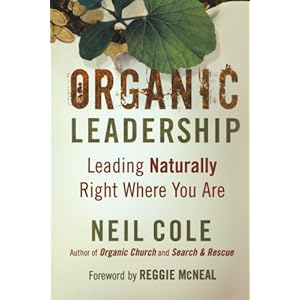Ridgeview Church was a church plant in the Blue Ridge community of Upstate South Carolina. A church planter started the church in 2003 with a vision to establish a church body that focuses all their attention and efforts on the community outside of the church rather than maintaining and servicing the members of the church body itself. Through my own casual observation while driving through the Blue Ridge community, I found that with the exception of only a few, the vast majority of churches within the region had been established in the 1950’s or earlier and could be classified as what I have heard termed “family” churches. This “family” term sounds nice on the surface, but what it is intended to signify is that the only growth this type of church experiences is the numerical growth of an extended family over a 50 year period. Given the opportunity to be part of something new and different, a church meeting in an elementary school cafeteria, and a church that was open to try just about anything if it was about provoking change in the community, I was happy to join the staff team in April of 2006 as the Worship and Outreach Minister at Ridgeview.
There are a number of limitations presented to a church while meeting in an elementary school. Most easily noticeable, is the weekly grind involved in setting up an entire church week in and week out. After only a short period of time in existence, it was quickly realized that meeting only once a week in a large worship setting uncovered a greater obstacle for our church plant. Six months after launching, Ridgeview built its discipleship strategy around small groups which were at the time entitled “home groups” which meet in various homes throughout the community each week. In the summer of 2006, while heading into the new home group semester in the fall, our staff evaluated our groups to be a good place for building friendships and meaningful relationships, (loving one another) but was this enough to be considered true discipleship and spiritual growth? When would these groups begin producing the trailblazers that we had anticipated as our primary investment as “leadership factories?” It was at this point we received an invitation to attend a Church Planting Synergy Conference in Columbia, SC that would change my trajectory in church ministry from that point on. Guest speaker for this conference was an author, experienced church planter and pastor, Neil Cole.
After spending a number of years on staff at a large evangelical church, Cole found that whenever the local church attempts to engage the world in evangelism, it most often employs a “y’all come” type of outreach. The church, in effect, throws some type of party and expects the world to come to it. When I heard Cole’s description, and knew my primary responsibilities in our church included outreach, I was hit square between the eyes. I knew very clearly that every event, every strategy, and any vision I currently had of the future included exactly that: throwing various shapes and forms of a party and hoping some people would show up. I also knew that in my own mind, these are the score cards that I was evaluating the success and failure of my own ministry on. Even further, these would be the things I would expect from, and try to develop along in the leaders that I was responsible for; their effectiveness in getting people to “show up.”
It left me feeling empty and shallow. I remember returning to the hotel room with Pastor Tommy and asking one another something like, “Ok, so here we are. We are supposed to be starting a church plant that is different than the virtually irrelevant churches around us founded 50 years or more ago. Yet, it appears we are on the same trajectory. What are we supposed to do now?” In Cole’s book Organic Leadership he even calls this methodology and approach to ministry “Institutionalism.” “Christ did not come to establish an institution. His kingdom and his church are meant to be relational and spontaneous movements, not organizations.” Currently, where does the church get its models of leadership? We borrow structures from the military, the marketplace or from the academic institutions that we were trained in. Sadly, our lens for leadership rarely comes from Scripture, and when we read sections of the Bible like the book of Acts, we too often insert our own modern contextual viewpoint into the text when it comes to understanding leadership.
Cole points out: “The top-down flow of authority is all we really know, having never experienced anything else. But the true kingdom of God is revolutionary. It’s counter-cultural. Its upside-down from what we normally expect. Jesus is introducing a whole new form of governance. It is not a new idea for Jesus, but it is for us.” This is an especially difficult concept, because control is often a big concern in churches. Someone always has to be in charge. Someone is always responsible. Negatively, someone is always available to blame. Positively, someone is always on guard. Cole does a great job of lowering the bar. He encourages the reader that the very best way to lead leaders can be learned from a middle school boy. Cole compares Jesus to a sixth grade boy rolling up on a skateboard and interacting with the theological scholars of his day. How was he able to gain their audience? “When it comes to having influence among those considered by all to be leaders, you simply must approach with a listening ear if you ever hope to get their ear. Jesus, even at such a young age, understood what it took to gain an audience from those who normally would not have the time for such a youth. He listened to them, and asked insightful questions.”
I appreciate the authors simple approach to leadership. He gives some practical tools to mentoring, insists upon accountability, and points towards working yourself out of a job by implementing exit and empowerment strategies. But Cole doesn’t offer ten easy leadership principles, or a six letter acronym that sounds great and sticks in your memory. Instead, interacting with his materials feels much like what he describes as Jesus’ approach. Cole tells the stories of those he has listened to, then asks a ton of insightful questions. Its amazing how much impact this approach can have.







0 comments:
Post a Comment